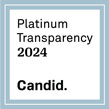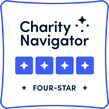Ocean Science in the Spotlight at AAAS Annual Meeting
February 21, 2013
Can better aquaculture technology sustainably feed our growing world population? Is the future of conservation at a crossroads? How can we increase appreciation for ecosystem services like wave-breaking sand dunes and protective mangroves before a disaster?
Those were some of the questions asked by leading marine researchers and conservation policy advocates at the annual meeting held by the American Association for the Advancement of Science (AAAS) in Boston, MA this past President’s Day Weekend.
The ocean played a key role in the program at this year’s AAAS Meeting, the theme of which was “The Beauty and Benefits of Science.” With approximately 6,000 researchers and science enthusiasts from around the world, attendees ranged from astrophysicists and chemists to science communicators, reporters and even artists. This diversity allowed top marine researchers to introduce ocean management issues to a broader scientific public and the press.

Many of the ocean-themed sessions included case study examples from Mission Blue Hope Spot regions. (Clicking speakers’ names will link to summaries of their presentations):
• Gulf of Mexico: Dr. Jane Lubchenco – Administrator of the National Oceanic and Atmospheric Administration (NOAA) – and Dr. Alan Thornhill of the Department of the Interior (DOI) discussed continuing efforts to restore human and ecosystem health in the Gulf of Mexico following the Deepwater Horizon oil spill.
• Gulf of California: Dr. Leila Sievanen of Brown University and University of Hawaii discussed how climate variability impacts key fish species in Baja California Sur, Mexico and how small-scale fisheries may adapt to the increasing effects of climate change.
• Micronesian Islands: Dr. Maria K. Dillard of the University of Pittsburg explored what factors lead to resilience in terms of ecosystem health and social wellbeing within small island communities of US coral reef jurisdiction.

Overall, ocean-themed presentations at the Meeting emphasized the importance of innovation and clear communication to non-scientist decision makers and stakeholders to help marine management strategies take hold – particularly when faced by the ever-increasing threats of climate change and ocean acidification. While many questions remain unanswered, it’s clear that the scientific world is working hard to effectively communicate ocean issues to the public. It couldn’t come at a better time.









One thought on “Ocean Science in the Spotlight at AAAS Annual Meeting”